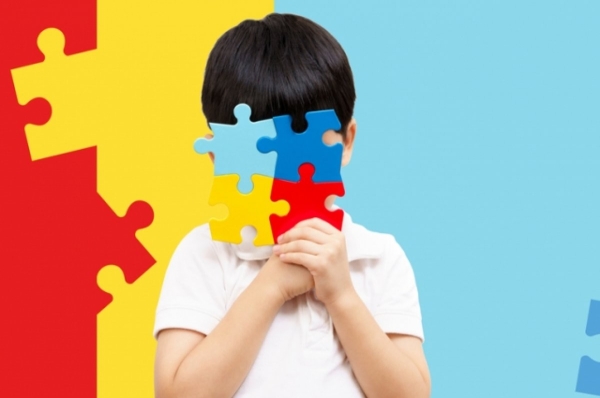
Photo: Shutterstock.com
On August 1, Tajikistan started accepting documents for children entering the first grade for the 2025-2026 academic year. But for parents of a child with autism spectrum disorders (ASD), this day is not so much a holiday as a source of anxiety and doubt.
"My child is already 8 years old. For several years now, he has been visiting specialists at various Development Centers, knows letters, knows how to count, but he does not speak in sentences, cannot sit still for long, does not like noise and is often absent-minded. I'm very worried and worried: he won't be able to do it in a regular class, and he won't be able to do it in a boarding school. What should I do? I'm afraid that in a regular school he will be "bullied and his psyche will be broken," worries the father of a child with ASD.
Many parents face a similar situation.
Law and reality: where do special children study?
According to the Law on Education, every child who has reached the age of 7 must receive secondary education. This also applies to children with ASD or autism.
Parents from Dushanbe must undergo a commission of Psychological, medical and pedagogical counseling (PMPC), located in the 12th polyclinic in the 46th district of the capital.
The commission consists of various medical specialists, they will assess the level of development and abilities of the child, determine the form of education: in a comprehensive school, individually at home, or in a specialized boarding school.
"But education is mandatory for everyone," explains Asobiddin Bobozoda, head of the Department of Preschool and School Institutions at the Main Department of Education in Dushanbe.
To the question: "Are primary school teachers ready to "mess around" with a special child, are they familiar with the methods of teaching children with special needs of neurodevelopment?", he answers: "secondary school teachers have higher pedagogical education and studied psychology at university. They should be able to find an approach to all the children in the class."
NGO "Iroda": "We are at the beginning of our journey in Tajikistan"
Lola Nasreddinova is the head of the NGO "IRODA", one of the few who knows firsthand what parents of children with ASD and autism face.
"Inclusion is not just about enrolling a child with ASD in a classroom. This is to prepare the child, the family, and the school for it. For parents of special children, it is important to choose a teacher and a school where their child will receive understanding, respect and will not be isolated, and this is "not an easy task." So far in our country, parents of special children are often left alone with their problem. Mom becomes a teacher, a tutor, and a psychologist because no one else helps," she says.
Lola Nasreddinova emphasizes that Tajikistan formally has inclusion, but, in fact, there is neither a teacher training system, nor official tutors, nor an approved model of inclusive education.
What is an adaptive resource class?
NGO "IRODA", whose mission is to support people with autism in Tajikistan, is one of the few organizations that has developed and implemented since 2015 a model of an adaptive resource classroom, a safe educational environment where children with ASD and other developmental disabilities can learn at their own pace.
Currently, such classes are operating in schools No. 28, No. 54 and No. 92 in Dushanbe with the support of the Ministry of Education and Science, the Japanese Agency for International Cooperation and other partners.
According to the head of the NGO "Iroda": "The purpose of the resource-adaptive class is to support children with autism spectrum disorders (ASD) and other features of mental development in adapting to the school environment, in developing learning skills, interaction and self—regulation, academic skills."
In the adaptive resource classroom, the child receives training according to an individually adapted program from trained teachers using internationally recognized methods in their work.: AVA (Applied Behavioral Analysis), PECS (Image exchange communication system), sensory integration therapy, etc.
These techniques allow the child to acquire basic academic, communication and social adaptation skills.
In these classes, the child prepares for a possible transition to the official school curriculum or attends them in parallel with the school curriculum.
"It is important to remember that a resource class is not an official enrollment in a public school, but an auxiliary program for developing student skills. To date, the Ministry of Education has not approved a regulation on resource classes, tutors, or strategies for implementing inclusive education for children with moderate and complex neurodevelopmental disorders. Children with mild autism, often without an official diagnosis, both studied in schools and continue to study," Nasreddinova explains.
According to her, only those children who are officially enrolled in school through the Ministry of Education of the Republic of Tajikistan receive a state certificate after the recommendation of the PMPC commission.




